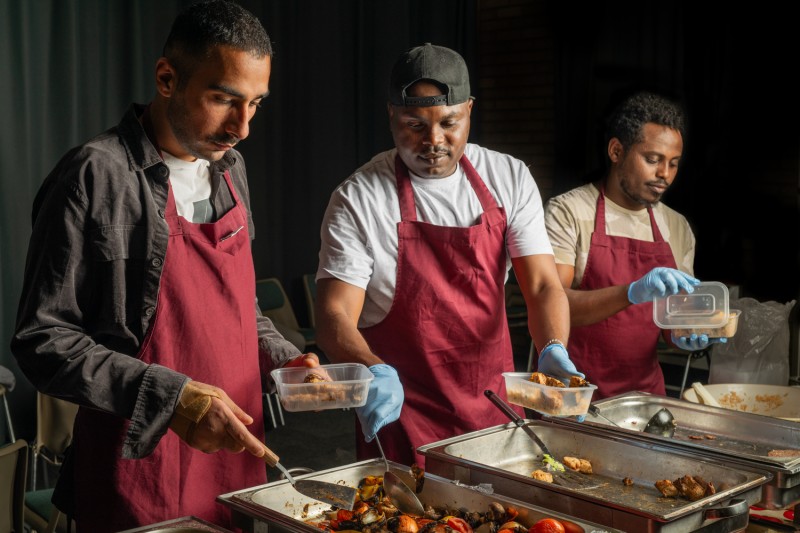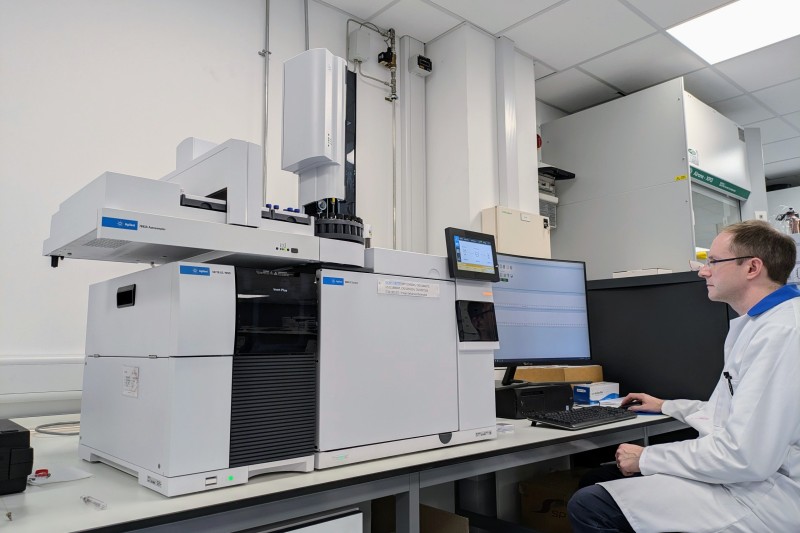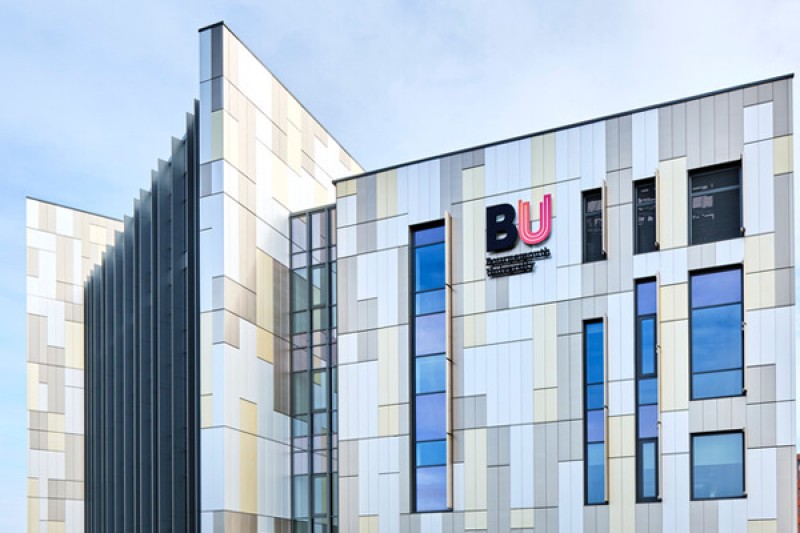Bournemouth University (BU) hosted a range of free events as part of this year's ESRC Festival of Social Science, showcasing the university's research and its impact on our lives.
Over 250 attendees joined five events, two of which were also featured in the University of Southampton’s Arts and Humanities Day on Saturday 9 November.
In partnership with the University of Southampton for the second consecutive year, BU's events as part of the festival showcased a broad range of research, from discussions on wellbeing and cybersecurity to an exhibition highlighting the voices of young LGBTQ+ individuals.
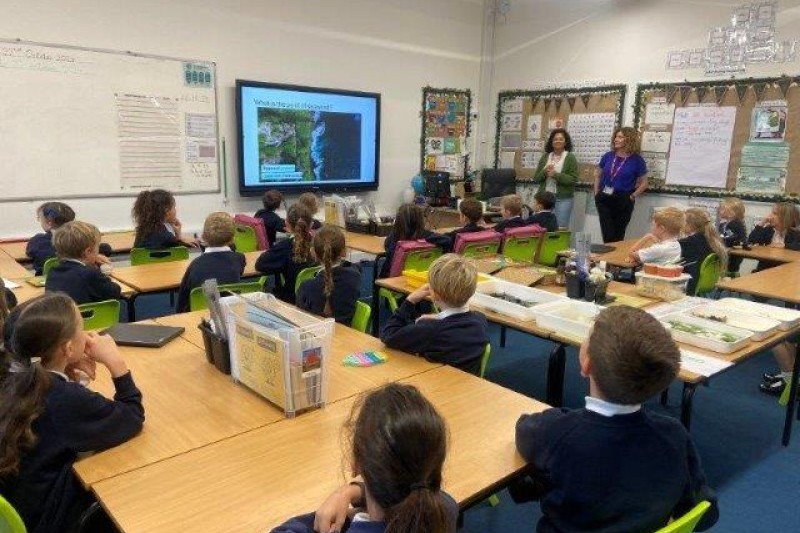 Children at Avonwood School learnt about seaweed as a food source
Children at Avonwood School learnt about seaweed as a food sourceThe festival programme began with ‘Underwater Farms – The Magic of Seaweed’ an exciting opening event for 61 Year 3 students at Avonwood Primary School.
BU researchers Anastasia Vayona and Kirthana Pillay visited two classes, where they introduced children between the ages of 7-8 to the potential of seaweed as a food source and highlighted how underwater farming could play a crucial role in creating a more sustainable future for agriculture.
Following the event, a teacher from Avonwood Primary School said: "[It was] a really informative and fun event that was perfectly pitched for the age of participants…it gave them a chance to explore food and nutrition in a fun, interactive context."
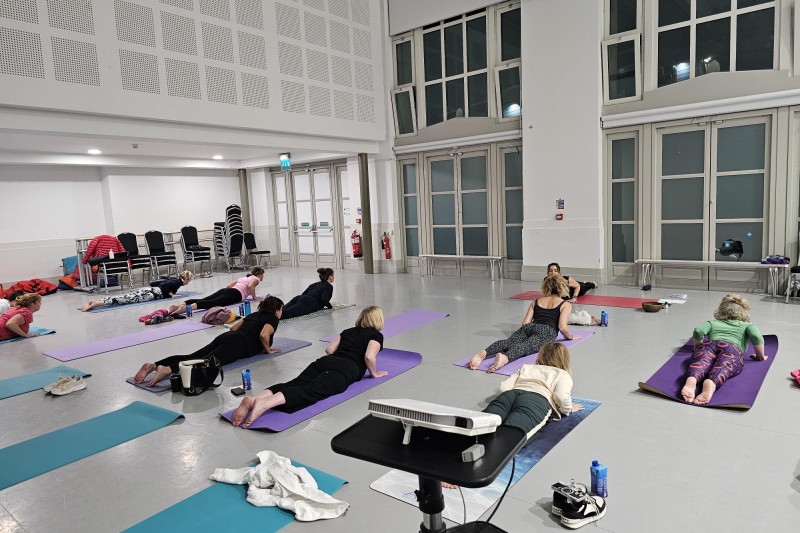 Attendees took part in yoga exercises as part of the Take a Meno-pause event
Attendees took part in yoga exercises as part of the Take a Meno-pause eventThe next event, Take a Meno(pause) - exploring well-being through yoga for mid-life - was an interactive session at Pavilion Dance, focusing on the benefits of yoga during the menopause years.
Dr Juliette Hecquet’s research looks at yoga’s effectiveness in managing the physical and emotional symptoms of perimenopause, menopause, and beyond.
Participants learned how yoga can enhance physical and mental health and how mindfulness can support the transition through mid-life. The session also included a guided yoga practice led by Dr Hecquet, with poses and breathing exercises designed to deepen relaxation and improve wellbeing throughout the menopause journey.
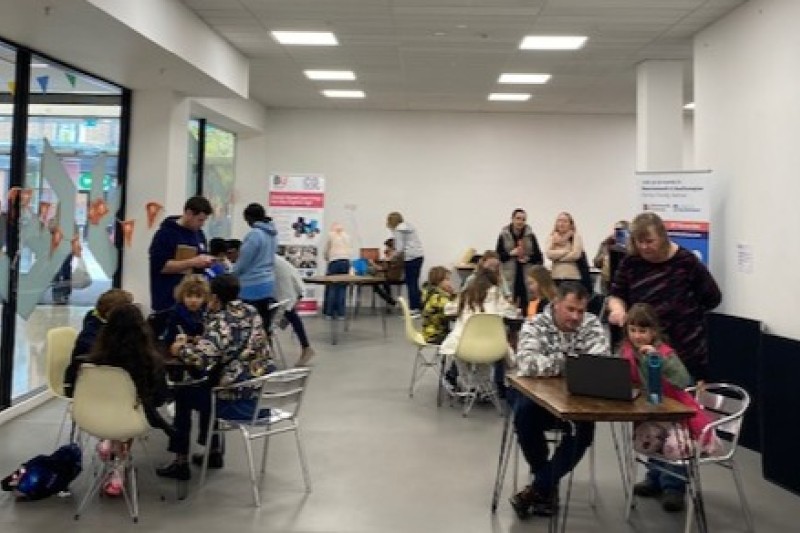 Families took part in a Cybersecurity Day at Dolphin Shopping Centre
Families took part in a Cybersecurity Day at Dolphin Shopping CentreBU’s CyGamBIT Team hosted a Cybersecurity Family Fun Day at Gather, the hub for community events at the Dolphin Centre in Poole. Held during half term, this interactive event gave participants of all ages the opportunity to discover practical tools to enhance digital safety, with hands-on activities that made learning about cybersecurity both fun and accessible
Guided by BU computer science researcher Dr Jane Henriksen-Bulmer and CyGamBIT co-founder and BU PhD student Emily Rosenorn-Lanng, families left with practical takeaways to help keep their information secure and a better understanding of how digital safety affects everyone.
Online workshop, Teaching for Wellbeing: Connecting Practice with Socio-Emotional Support, led by Dr Esther Anwuzia, covered effective teaching practices to support students’ wellbeing in today’s challenging environment.
Dr Anwuzia’s research explores how heavy workloads restrict teachers’ ability to reflect beyond teaching and grading. Since the pandemic, an increasing number of students with social and emotional difficulties are absent from school. Focused teaching can help build students’ confidence and support responsible decision-making.
Former teachers Elaine Baker-Smith and Jerry Whitton, with a combined 55 years of experience, also participated in the session, offering their perspectives on effective teaching practices, and promoting student wellbeing.
The workshop provided an opportunity for teachers to connect, exchange insights, reflect on their experiences, and explore strategies for making a positive impact on students’ lives.
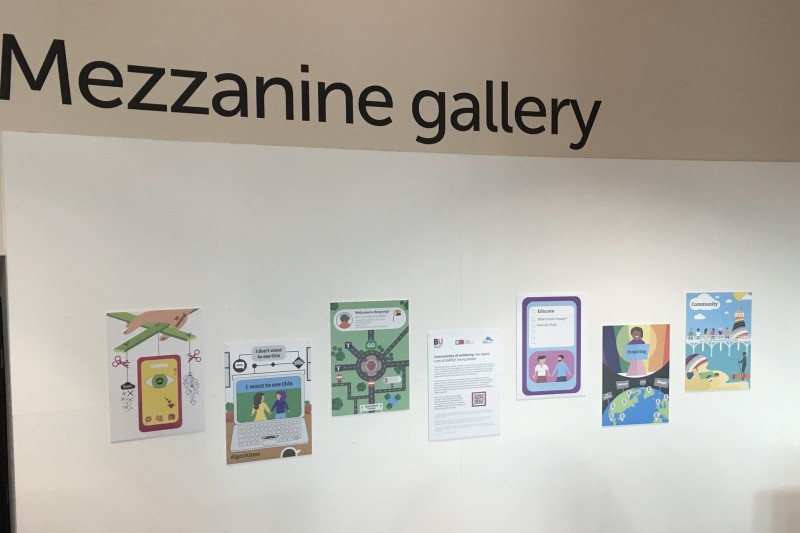 The Our Digital Lives exhibition at Poole Lighthouse
The Our Digital Lives exhibition at Poole LighthouseThe Communities of wellbeing: the digital lives of LGBTQ+ young people exhibition was displayed at the Lighthouse in Poole from 26 October – 16 November. The artwork highlighted the powerful stories of young LGBTQ+ individuals, who shared their experiences of creating inclusive online spaces where they feel safe, joyful, and have a sense of belonging.
Dr Jayne Caudwell and Dr Francesca Gaunt hosted a series of workshops with LGBTQ+ youth. Through these group discussions, six key themes emerged, including topics like the experience of coming out as LGBTQ+ in online spaces. These conversations inspired the creation of the artwork reflecting the themes explored.
The ESRC Festival of Social Science is an annual celebration of research and knowledge about humans and society, with over 300 events running across the UK. Now in its 20th year, this year's festival theme was 'our digital lives', exploring the relationship between humans and digital technology.
